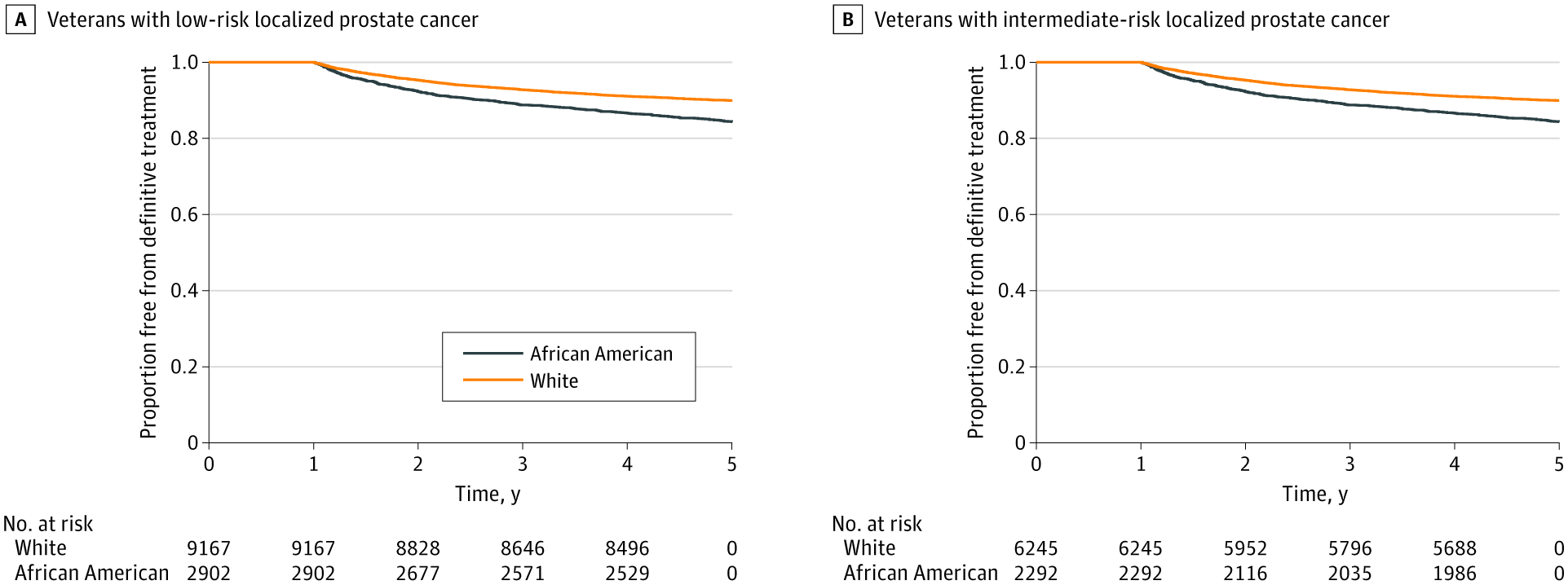
What is the problem
Compared to White men, Black men with prostate cancer are diagnosed with higher-grade disease, receive different treatment, and tend to suffer worse outcomes. Biology doesn't explain all -- or most -- of these disparities. By using data from real-world sources like the VA, we examine population-level mechanisms of racial disparities in prostate and other cancers.
What are we doing
In studies using national data from the VA, we have shown that Black men with low-risk prostate cancer tend to be treated more aggressively than White men. We also show that survivorship issues like cardiovascular conditions and depression are more common in Black men and are less optimally controlled, often leading to poor outcomes. Finally, we have explored how certain novel treatments in prostate cancer are potentially less effective, pointing the way for biomarker studies.
Impact
Real-world studies often point the way towards socioeconomic and biological mechanisms for disparities in cancers like prostate cancer. We have a longitudinal effort underway to use innovative data sources and rigorous methods to explore real-world disparities in cancer outcomes across several cancers.
